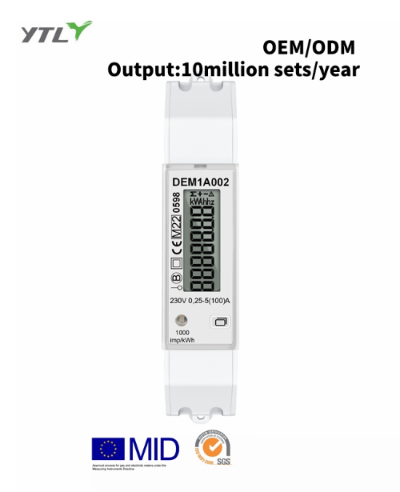
As technology continues to advance and the world becomes increasingly concerned about environmental protection, E metering , has caught the attention of society. E metering is the digital process of measuring and recording energy usage, and it has huge implications for energy companies, consumers, and the environment as a whole.
The traditional method of metering energy usage has been replaced by the more efficient E metering process. Earlier, energy consumption amounts were manually read from mechanical meters, a process that was time-consuming and had a higher margin of error. E metering, on the other hand, involves sensor technology, digital meters, and communication networks to transmit real-time data to energy providers.
E metering has several benefits for energy companies. above all, this enables them to accurately record and monitor energy usage, improving billing accuracy and reducing the need for manual reading. Secondly, it offers a more efficient and cost-effective way of managing energy distribution, and it can also help to pinpoint faults in the energy distribution network.
For consumers, E metering provides real-time data about their energy consumption, enabling them to make informed decisions about their energy usage behavior. This can help to reduce energy waste and lower energy bills. E metering also eliminates the need for estimated billing, which can sometimes be inaccurate and cause confusion and frustration among consumers.
From an environmental perspective, E metering plays a crucial role. By providing accurate information on energy consumption, it helps to identify areas of energy wastage, promotes energy conservation behavior, and contributes to a healthier environment. This can result in a reduction of greenhouse gas emissions, decrease reliance on fossil fuels and have a positive impact on our planet.
However, some valid concerns have been raised about privacy and data security. The transmission of personal energy usage data over communication networks could potentially create security vulnerabilities and privacy issues. Therefore, it is vital to ensure that adequate safeguards are in place to protect consumer data and privacy.
In conclusion, E metering is a critical step towards a more efficient, accurate, and environmentally friendly energy management system. It offers numerous benefits to energy providers, consumers, and the planet. However, it is crucial to ensure that appropriate security measures are employed to protect consumers' data and privacy. With the world's push towards digitalization, E metering is sure to become even more prevalent in the energy and utility industries in the future.

 English
English 简体中文
简体中文







.png?imageView2/2/w/500/h/500/format/png/q/100)
.png?imageView2/2/w/500/h/500/format/png/q/100)

.png?imageView2/2/w/500/h/500/format/png/q/100)




